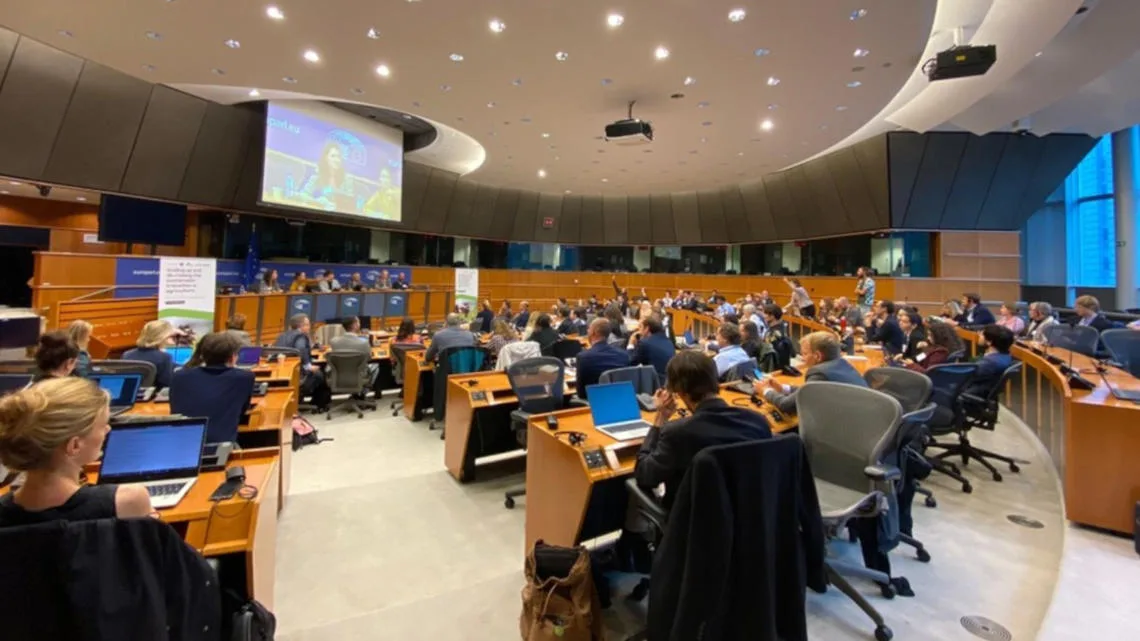Authors
Casper Zulim de Swarte, Sr. Manager Advocacy & Communication, OP2B
How to scale up regenerative agriculture and how to spread the financial risks along the supply chain? OP2B, the European young farmers association (CEJA) and Food and Drink Europe organized an event at the European Parliament to show that frontrunners are eager to change, but they need support from EU policy makers.
A holistic approach to agriculture – that benefits farmers, the climate and nature simultaneously – is one of the best viable solutions for the future of the sector in order to address current threats to our soil, farmers’ livelihoods and food security. In this context, farmers must be acknowledged for their contributions to the environment and society, being fairly rewarded for their production and supported to farm sustainably.
This was the main message of the European Council of Young Farmers (CEJA), FoodDrinkEurope and One Planet Business for Biodiversity (OP2B) at the “Scaling up-and de-risking the sustainable transition in agriculture” event held on 21 September 2023, at the European Parliament. The event was co-hosted by MEP Pascal Canfin and MEP Clara Aguilera.
Young farmers at the forefront of transition
The impacts of climate change and biodiversity loss on agricultural production are becoming everyday challenges for farmers. Young farmers have a strong will to drive change within the current agricultural system, but they face significant challenges to making it happen.
Elisabeth Hidén is a first-year farmer from Sweden and vice-president of CEJA. She says that her three biggest challenges are climate change, access to land and access to funds.
Scaling up sustainable agriculture requires collaboration with the entire value chain
The agri-food industry recognizes the urgent need to swiftly scale up sustainable agricultural practices. Frontrunners like Danone, Unilever, Nestlé, McCain and many others have made strong commitments to a transition to regenerative farming. Farmers cannot make the transition alone, we need partnerships across the value chain to scale up the transition.
According to Elze Jellema, Vice-Chair of the Cooperative Board of FrieslandCampina, “we need more engagement with farmers and incentive systems for climate and biodiversity protection, and restoration should be based on results – leveraging on farmers’ craftsmanship to reach positive outcomes, rather than prescribing measures.”
De-risking the transition
Young farmers, industry leaders and policymakers, alongside financial institutions, recognize that public funds alone may not suffice to drive the transformation required, and they emphasize the need for innovative financial mechanisms that bridge public and private interests. A dedicated financing platform, backed by banks and financial institutions, could unlock resources and accelerate the adoption of sustainable farming practices.
Stefania Avanzini, director of OP2B, is confident about the ability to change: “Everyone understands the sense of urgency to transition. We have heard today about so many examples testifying that the transition is already underway.
“The transition to more resilient and regenerative agricultural models at scale will require collaborations between each actor in the value chain from farmers to retailers and in dialogue with policymakers,” said Stefania Avanzini.
Download the full report here.
Watch the after movie here.
See the recording of the full meeting here.
Outline
